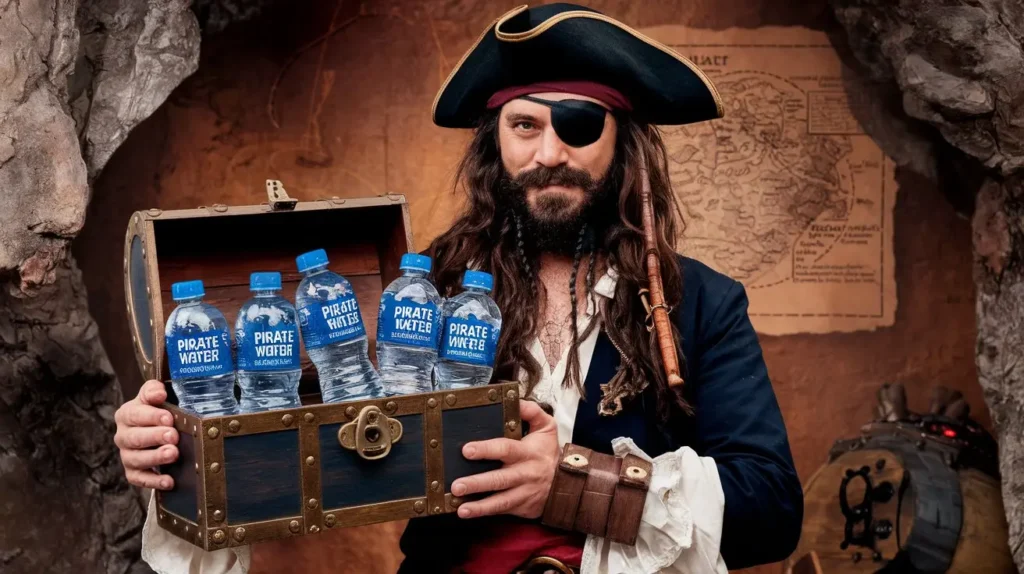Pirate Water is gaining popularity as a new beverage option among people who enjoy flavored drinks. With its colorful packaging and catchy name, many are curious about what Pirate Water really contains. In this article, we’ll dive deep into the nutrition facts, the ingredients used, and what they mean for your health. If you’re concerned about calories, sugars, or artificial additives, this guide will help you understand exactly what you’re drinking.
What is Pirate Water?
Pirate Water is a flavored alcoholic beverage. It is marketed as a fun, party drink available in various fruity flavors. These types of beverages are especially popular with a younger crowd because of their affordability and accessibility. Pirate Water comes in convenient, ready-to-drink cans, making it easy for people to grab and go.
Serving Size
Understanding the serving size is essential to breaking down the nutrition facts of any drink. A standard can of Pirate Water contains 16 ounces of liquid. This is a larger serving than many alcoholic beverages, which typically come in 12-ounce cans. This difference in size affects the overall intake of calories, sugars, and alcohol content per serving.
Calories in Pirate Water
One of the first things people often look at in any drink is the calorie content. Each 16-ounce can of Pirate Water packs around 240-300 calories. While this might not seem alarming at first, it is important to note that these calories mainly come from sugars and alcohol, two components that don’t provide much nutritional value.
For comparison, a 12-ounce beer has around 150 calories, and a glass of wine contains about 125 calories. Pirate Water contains more calories due to the combination of alcohol and added sugars.
Sugar Content
Sugar is another big factor in Pirate Water’s nutrition profile. Each can contains around 30-40 grams of sugar. To put that in perspective, the recommended daily intake of sugar for adults is around 25-36 grams. This means that one can of Pirate Water can easily exceed your daily sugar intake in a single serving.
Excessive sugar consumption can lead to a variety of health issues, including weight gain, increased risk of diabetes, and tooth decay. If you’re concerned about your sugar intake, you may want to think twice before reaching for a can of Pirate Water.
Alcohol by Volume (ABV)
Pirate Water isn’t just a sugary drink; it also contains a substantial amount of alcohol. The average ABV (Alcohol by Volume) in Pirate Water is about 10%. For context, most beers have an ABV of around 5%, and wine ranges between 10-14%. This makes Pirate Water a potent drink, especially given its larger serving size.
The high alcohol content, combined with sugar, can lead to rapid intoxication. This can make it easy to overconsume, especially for people who are not accustomed to drinks with high sugar content masking the alcohol.
Ingredients in Pirate Water
What exactly goes into making Pirate Water? The ingredients list usually includes:
- Carbonated water
- High-fructose corn syrup (or another sweetener)
- Alcohol (usually derived from malt)
- Natural and artificial flavorings
- Citric acid
- Artificial colors
Each of these ingredients serves a specific purpose in making the drink flavorful, colorful, and easy to consume. However, some of these ingredients may raise health concerns.
High-Fructose Corn Syrup (HFCS)
One of the primary ingredients in Pirate Water is high-fructose corn syrup. HFCS is a common sweetener in many processed foods and beverages. It has been linked to numerous health issues, including obesity, insulin resistance, and fatty liver disease.
While small amounts of sugar are generally safe to consume, beverages like Pirate Water contain high amounts of HFCS, which can significantly contribute to long-term health problems if consumed regularly.
Artificial Flavors and Colors
Pirate Water contains both natural and artificial flavors, as well as artificial colors. These additives are included to make the drink more appealing in terms of taste and appearance. However, artificial ingredients can have negative effects on health. Some artificial colors have been associated with allergic reactions and other health concerns.
For people who are sensitive to artificial ingredients, Pirate Water may not be the best beverage choice.
Citric Acid
Citric acid is often used in beverages like Pirate Water to add a tangy flavor and act as a preservative. While it’s generally recognized as safe by the FDA, consuming too much citric acid over time can erode tooth enamel. This is especially concerning in sugary drinks, which already increase the risk of dental problems.
Pirate Water and Hydration
It’s easy to mistake flavored drinks like Pirate Water for hydrating beverages. However, alcohol and sugar both contribute to dehydration. Drinking Pirate Water on a hot day, or in large quantities, can leave you feeling more dehydrated than refreshed.
If you choose to drink Pirate Water, it’s important to balance it with plenty of water to stay hydrated.
Pirate Water and Weight Gain
Given its high calorie and sugar content, Pirate Water can contribute to weight gain if consumed frequently. Calories from sugar and alcohol provide little to no nutritional benefit, and they are easily stored as fat if not burned off through physical activity.
If you’re watching your weight, you might want to limit your intake of sugary alcoholic drinks like Pirate Water. Opting for lower-calorie beverages or alternating between water and alcohol can help reduce calorie consumption.
Health Risks of Overconsumption
Like many flavored alcoholic beverages, Pirate Water can lead to overconsumption. The sweetness of the drink can mask the taste of alcohol, making it easier to drink in larger amounts than you might intend.
Overconsumption of alcohol can lead to short-term risks, such as impaired judgment and alcohol poisoning, as well as long-term health risks, including liver disease, heart disease, and addiction.
Excessive sugar consumption adds to these risks, increasing the likelihood of developing chronic conditions like diabetes and heart disease.
Are There Any Nutritional Benefits?
Unfortunately, Pirate Water doesn’t offer many nutritional benefits. The calories come from sugar and alcohol, neither of which provide essential nutrients. There are no significant amounts of vitamins, minerals, or fiber in the drink.
If you’re looking for a drink that provides hydration and nutrition, you’re better off with water, herbal teas, or natural fruit juices.
Alternatives to Pirate Water
If you’re craving a fruity drink but want to avoid the high sugar and calorie content of Pirate Water, there are plenty of alternatives to choose from:
- Sparkling Water with Fruit – Combine sparkling water with fresh fruit slices for a flavorful, low-calorie drink.
- Light Cocktails – Opt for cocktails made with low-calorie mixers, such as soda water or light juice.
- Flavored Water – Many brands offer naturally flavored water without added sugars or artificial ingredients.
- Homemade Fruit Infused Water – Infuse water with your favorite fruits and herbs for a refreshing, healthy drink option.
These alternatives provide the flavor you crave without the unnecessary sugars and calories.
Conclusion
Pirate Water may be a fun and flavorful option for a party or a casual evening, but it’s not the best choice for regular consumption. The high calorie, sugar, and alcohol content can contribute to weight gain, dehydration, and other health risks if consumed frequently.
If you do enjoy Pirate Water, consider drinking it in moderation and balancing it with healthier beverages throughout the day. Always be mindful of your sugar and alcohol intake to ensure you’re making choices that support your overall health.
In the end, Pirate Water can be enjoyed as an occasional indulgence, but it shouldn’t become a regular part of your diet. By understanding the nutrition facts, you can make more informed decisions about when and how often to enjoy this drink.



